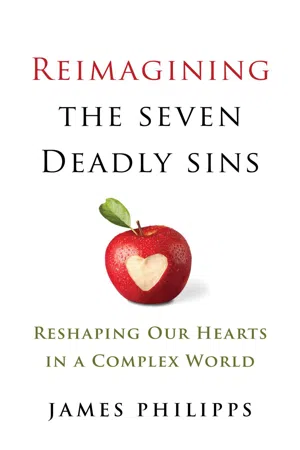Jesus’ actions in the story of the woman caught in adultery would have made Sherlock Holmes proud. The famous detective created by Sir Arthur Conan Doyle solved more than one case that seemed impossible to crack by simply noticing the obvious. In the story of the woman, Jesus too notices the obvious. If a woman is being dragged by herself through the streets into the public square on the grounds of adultery, the obvious question is: “Where’s the guy?”
The answer, unfortunately from a modern perspective, is also obvious. In the Mosaic Law that Jesus and all of those in the story followed, the penalty of death by stoning in the case of adultery applied only to the woman caught in the act of adultery. Why? Because according to the patriarchal culture of the day, women were a special class of property belonging to men. The Bible is full of examples of this prejudice; here’s one: In their original wording, the ninth and tenth commandments prohibit coveting “thy neighbor’s goods” and “thy neighbor’s wife.” Our modern sensibility encourages us to substitute “spouse,” and while that makes sense morally, it changes the original meaning. A man’s wife, in biblical times, belonged to him every bit as much as did his material possessions, his children, and his farm animals.
Jesus recognizes this societal assumption as did every other man in that crowd. The difference between Jesus and the elders is that Jesus sees it for the social sin that it is. The others see it as “God’s will”—though to say that they would have not on some level recognized it as a convenient way to protect the status of the ruling elites (all of whom were men) would be naive. And so when Jesus says, “Let he who has not sinned cast the first stone,” he is not so much speaking of their personal sins; he is speaking of the social injustice in which they are all participating—the dehumanization of women.
Personal Sin vs. Social Sin
Of course, Jesus recognizes personal sins such as adultery as real dangers. This is why he instructs the woman to “go and sin no more.” Jesus knows that all personal sins are against God’s will, not because God is a control freak who will not brook disobedience among his children, but because God’s will for each of us is that we live lives of joy, and joyful lives are chock full of deep and meaningful relationships. As demonstrated in Genesis chapters 3–11, personal sins act like a sharp knife slashing through the sacred relationships of our lives, causing disharmony between the sinner, the community, nature, and God.
For all the damage personal sin does, however, it pales in comparison to the devastation wrought by social sin. Social sin occurs when a society operates through structures that are oppressive and that undermine human dignity. Social injustice is the effect of social sin. Precisely because they deviate from the norm of what we consider moral behavior, personal sins (at least in the case of sins of commission) can be identified, the sinner can be helped to see the error of their ways, and, if by God’s grace there is a genuine desire on the part of the sinner to repent, they can make the necessary changes to behavior and attitude and receive the forgiveness God is eager to supply. Thus the reason the Church considers reconciliation a sacrament.
Social sins, on the other hand, are much more insidious. When the structures of a society are bent away from the “arc of justice,” a phrase used often by Dr. Martin Luther King Jr., sin becomes so much a part of our moral environment that we almost stop noticing it. A vicious cycle is set up as the injustices of the society in which we live become a breeding ground for more and more personal sin, which leads to even more injustice. As we will explore in the next chapter, conscience becomes ever more deformed as we gradually lose contact with the moral compass within that seeks to guide us.
There is a reason that the Hebrew prophets were persecuted, rejected, and often killed. There is a reason our modern prophets who speak against the social sins of today suffer such violent rejection. Nelson Mandela, for example, spent twenty-five years in jail for peacefully but persistently opposing apartheid in South Africa. Like the elders in the story of the woman caught in adultery, we lose our sense of real sin, swallowing the camel of our complicity with social injustice while we strain out the gnat of the personal sins of others—but hardly ever our own.
“See, I make all things new!”
The time has come for a paradigm shift. As Pope Leo XIII prophetically pointed out at the end of the nineteenth century, society’s increasing complexity since the time of Jesus calls for a drastic reevaluation of how we understand the Commandments and Beatitudes. (We will explore Pope Leo’s XIII groundbreaking encyclical, and its implications, in chapter 3.) The “neighborhood” in which we are called to love one another is so much larger, and the vast bulk of it is made up of people we will never meet in person but who will be tremendously affected by the decisions we make in all areas of our lives. (Just take a moment to consider what you had for breakfast this morning or the clothes you are wearing as you read this. How many people were involved in bringing those products to you, beginning with those who grew and harvested the raw materials or who tended the animals?) While the Ten Commandments remain as relevant as ever, Catholic moral teaching increasingly emphasizes our responsibility to reform not just ourselves but our society. In fact, it is simply impossible to do one without the other.
This shift in emphasis takes the form of seven basic themes or principles that, woven together, frame the social justice teaching of the Church. According to the website of the United States Conference of Catholic Bishops (usccb.org), they are:
- The life and dignity of the human person—Sometimes referred to as the “seamless garment of life,” this keystone tenet holds that life is sacred from the moment of conception to the moment of natural death.
- The right to full participation in society—Human beings by nature are both sacred and social. Every human being must be able to fully access all that is necessary to live a fully human life. These things include food, clothing, and shelter but also less tangible things, such as education and health care.
- Rights and responsibilities—As proclaimed in the foundational documents of our country, human beings have certain inalienable rights (life, liberty, and the pursuit of happiness) but also corresponding responsibilities to participate in and build a just society.
- The preferential option for the poor—We must always consider the needs of the poor first in making decisions and allocating resources, which requires us to focus more on the common good than our personal interests.
- The rights and dignity of workers—this includes things such as a right to a job for all willing to work, a right to a decent wage, a right to safe and decent working conditions, and a right to join a union.
- Solidarity—A recognition that when Jesus says all are sisters and brothers, he is speaking not metaphorically but literally. As mountain climbers ascending a steep slope tie themselves with rope to one another so that if one slips the rest can support them, we are truly all in this together.
- Care and concern for the environment—This a principle particularly close to Pope Francis’ heart; rather than emphasizing only stewardship—the recognition that human beings are responsible for taking care of the earth for future generations—this principle calls us to recognize our fundamental connection within the web of life of our planet. What we do to mother Earth, we do to ourselves.
The Social Justice Arch
I like to think of these seven principles as a kind of “Social Arch,” which I imagine to look something like this:
An arch is a support structure; in this case our arch supports a just society. Imagine the keystone, which locks in the other stones, as the dignity of human life; without this recognition no other tenet can stand. Yet to focus only on this principle at the expense of all of the others leaves us with no arch at all. Either all of the principles are observed, or none of them are.
The Seven Deadly Sins
Centuries ago, the moral teachers of the Church developed a means to simplify many of the requirements of personal morality and discipleship through a prism known as the seven deadly sins. It is no coincidence that both the social justice themes and this list total seven; seven is the number of perfection or completion in the Bible. Follow the seven social justice principles and we are on the way to creating a perfectly just society fully realized in the kingdom of God; indulge in the seven deadly sins and we are on the way to the perfect corruption and radical isolation known as hell.
This is an easy-to-understand means of gaining insight into a fundamental darkness in the human heart that causes us to turn away from joy, refuse God’s grace and love, and misuse our free will. A common thread that ties together all seven sins is that each involves an excessive attachment to something that, in and of itself, is good. For example, self-love is a good thing when it is rooted in a recognition that each of us has been created in the image and likeness of God. When we become so attached to our own selfish interests that we ignore the needs of others, however, healthy love of self has been distorted into the sin of pride or arrogance.
The shift toward a greater awareness of social sin has brought to light a fundamental flaw in the traditional way we understand the seven deadly sins. To think of the seven as primarily personal sins suggests that a personal sin is at the root of all of society’s evils (not completely untrue, but too simplistic) or that individual salvation is all that matters (I keep my soul clean, and you do as you will). We forget that at the heart of biblical morality is God’s desire to save a community, not just a few fortunate individuals. Too many Christians carry around a dangerously flawed perception of salvation that seems to suggest the world around us is a shark-filled ocean and the only safe place to be is on the ark of the Church that floats among the predators. The truth according to Jesus—who instructs his followers to “go and make disciples of all nations”—is closer to the opposite. It is precisely within those shark-infested waters that grace is at work. And if we wish to be caught up in this enterprise of grace, best to jump in and swim with our fellow sinners, having faith that the Spirit will work a transformation in those waters through us. It is what Paul talks about when he calls us to be “in the world, but not of the world.”
I invite you, in imitation of Jesus, to look at the obvious as it pertains to the society in which we live and the way its most vulnerable members are treated. Let us together reimagine the seven deadly sins so that we can see not only the excessive attachments of our personal lives but those of the society in which we live and in which we participate and, perhaps most important, the nexus between the two. This journey requires a great deal of love, courage, faith, and hope. It’s a journey that will at times be difficult because it will challenge our perception of what it means to be a “good” person. As with all enterprises of the Spirit, howe...


